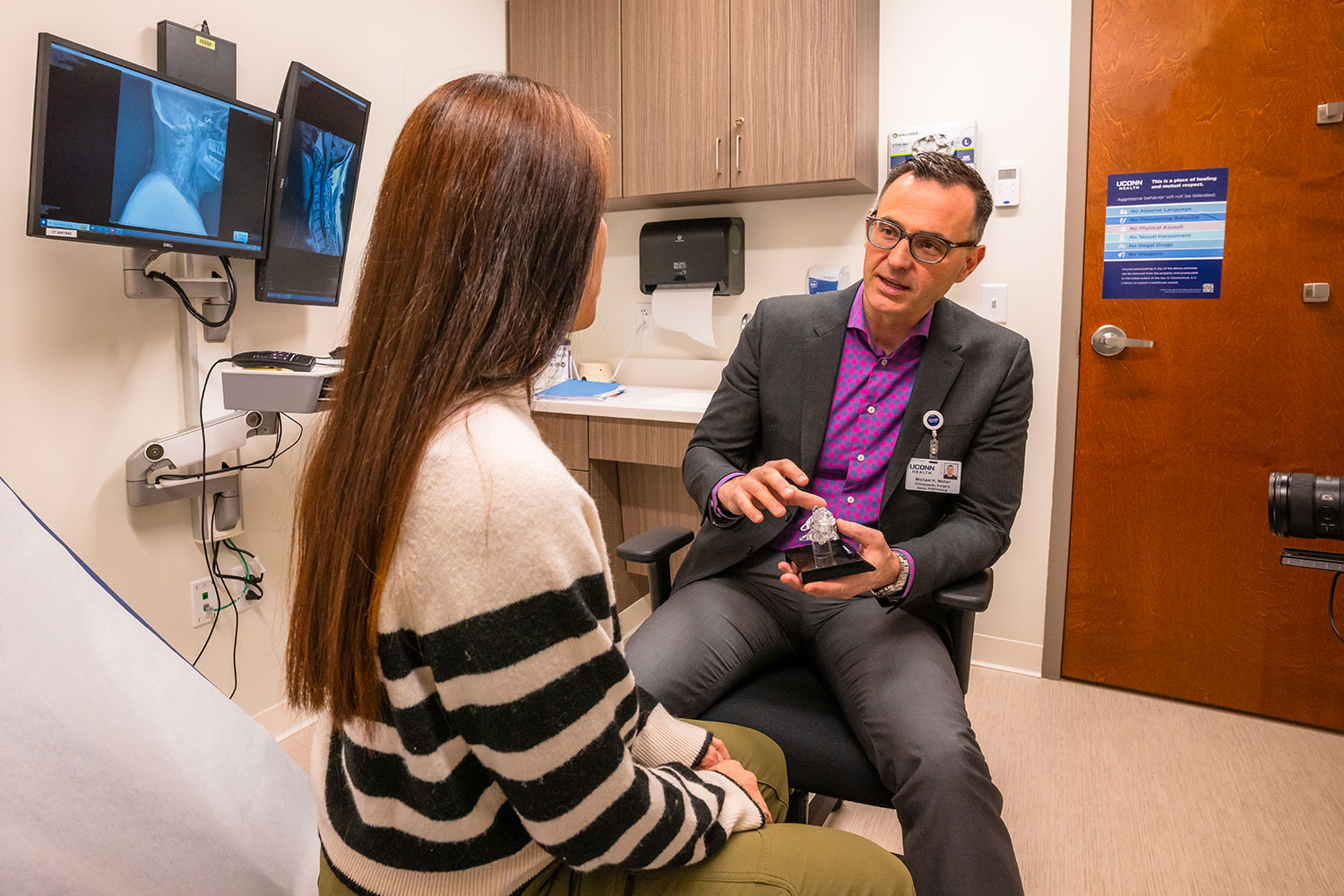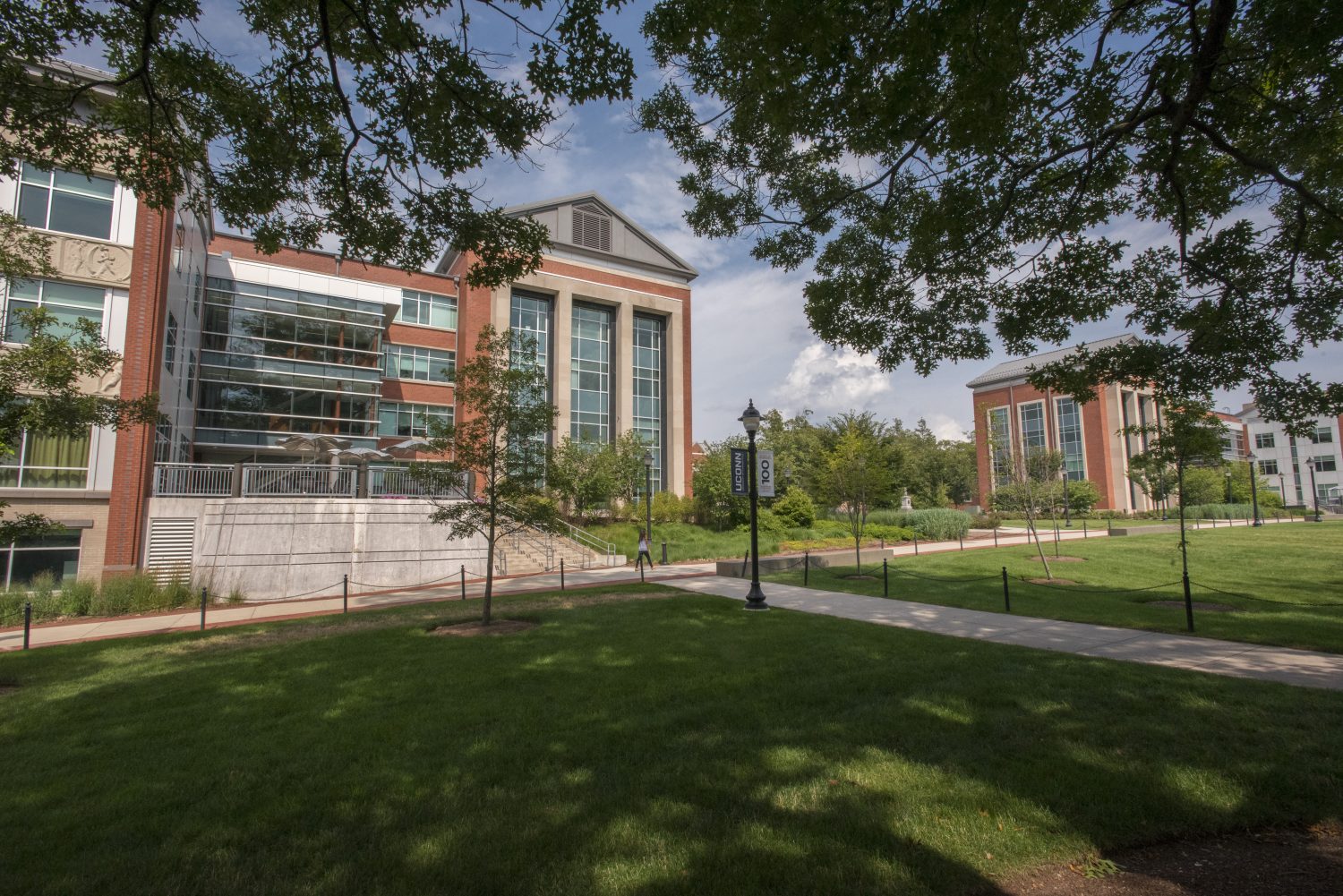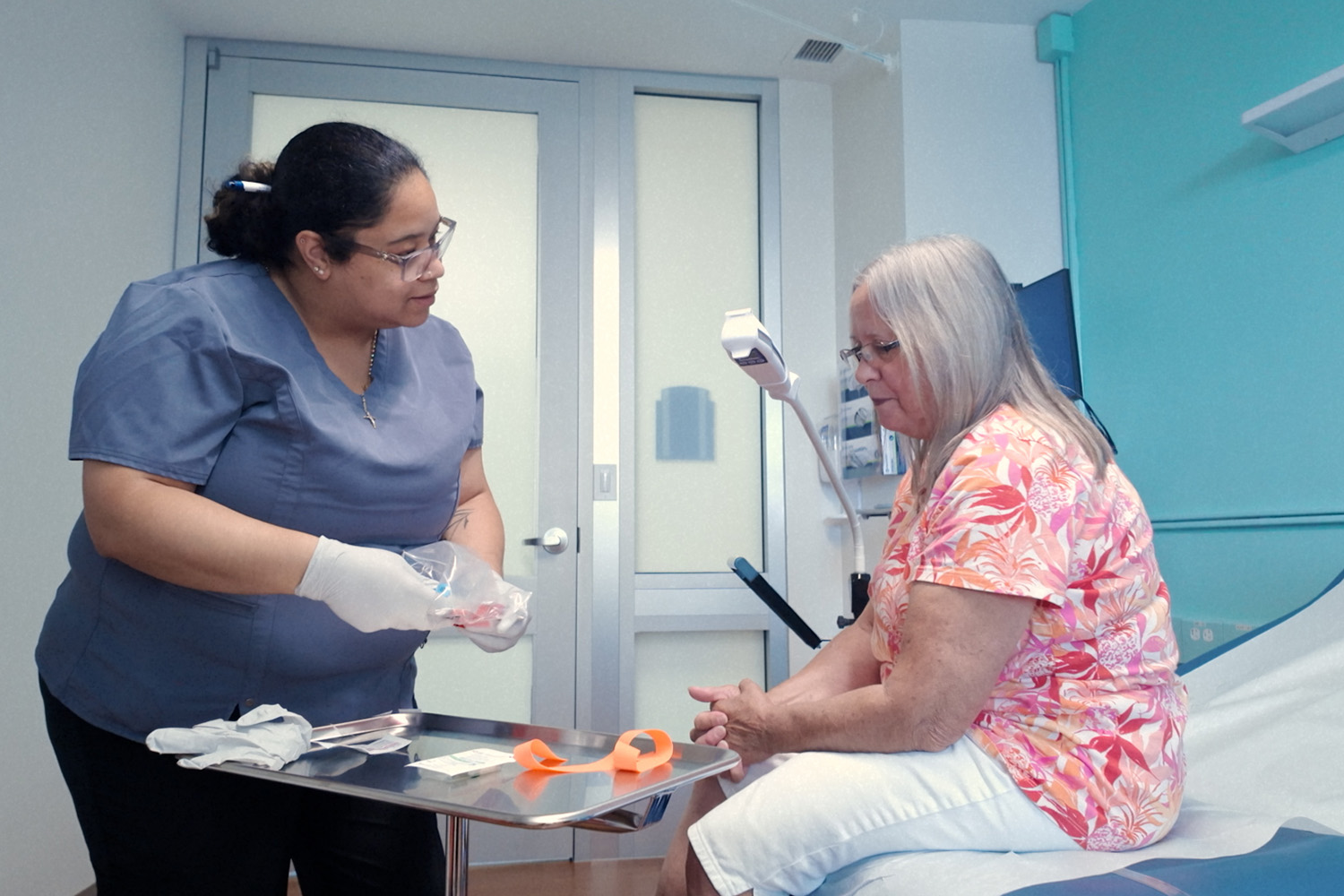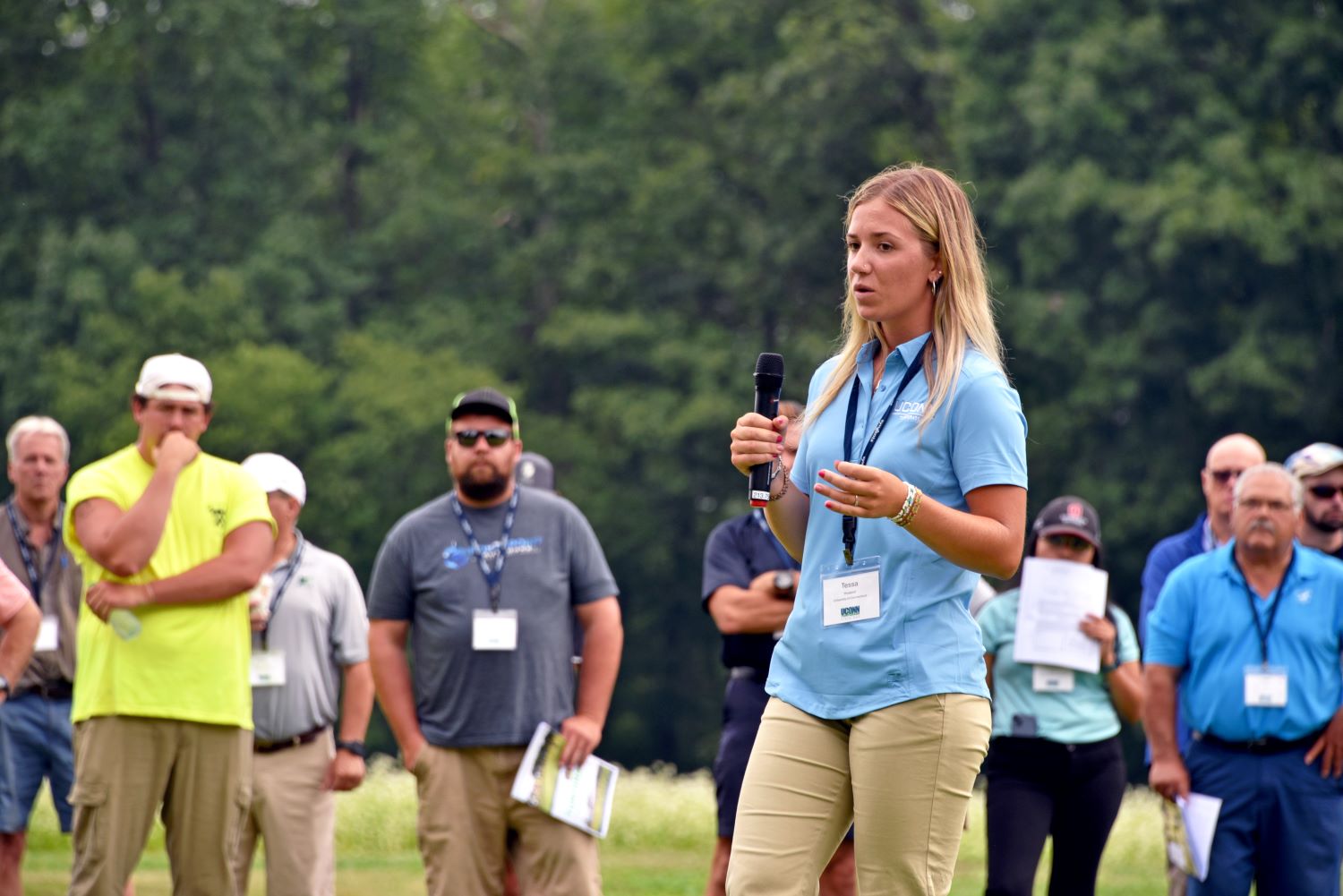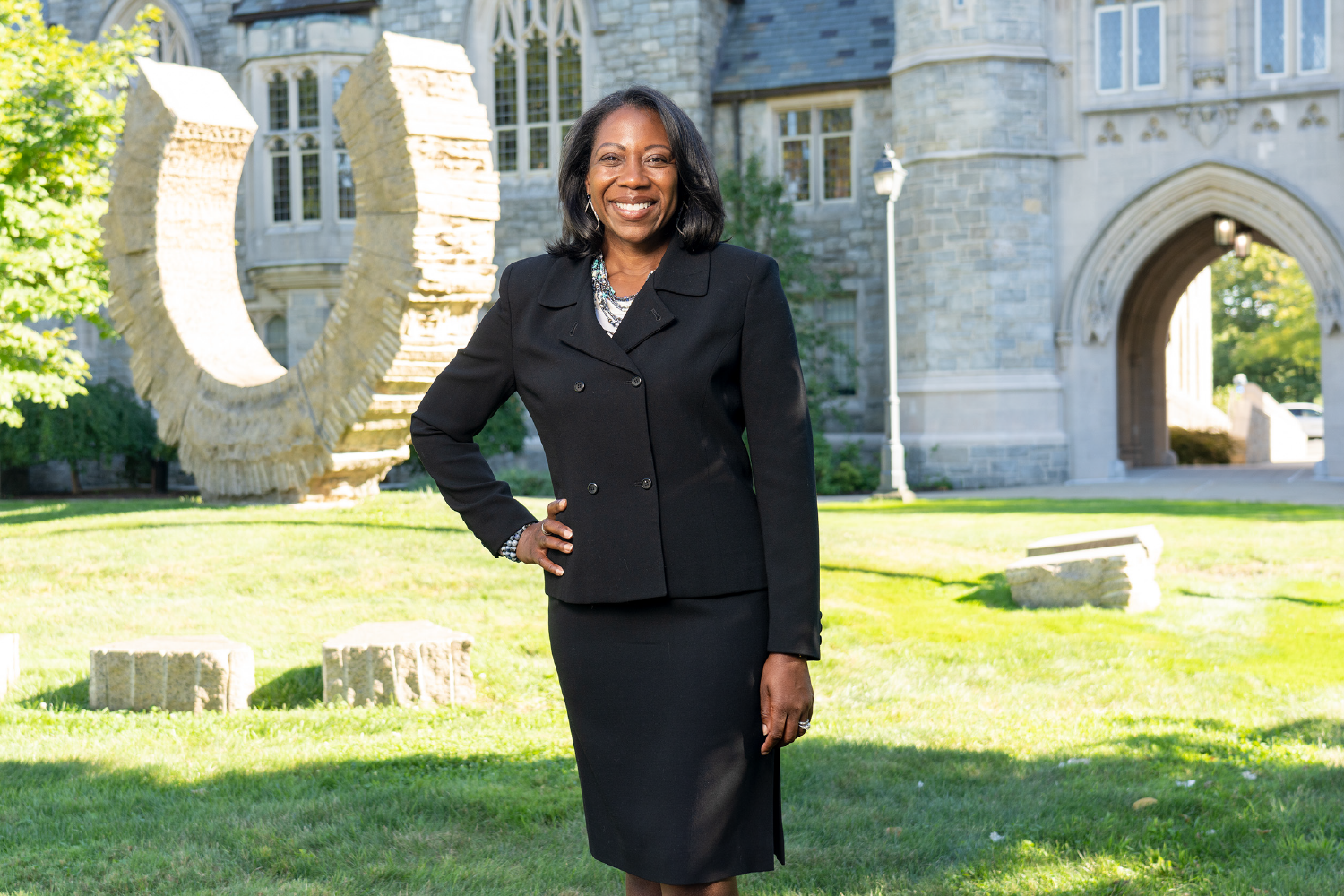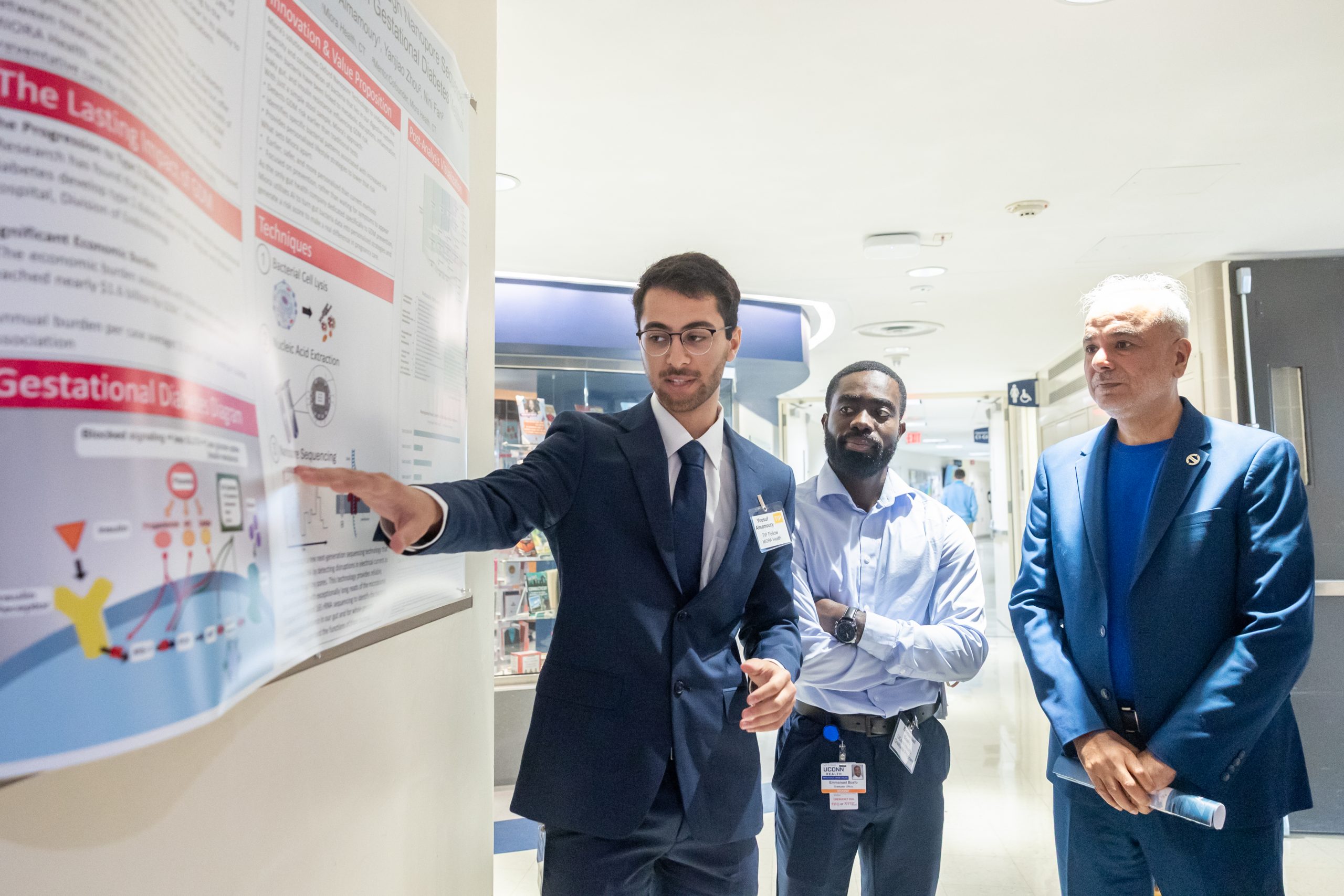From Minimally Invasive Disc Surgery to Oncology
When cancer spreads, it tends to infiltrate the lungs, liver, or bones. When it’s bone, the most likely destination is the spine.
Known as a spine metastasis, it’s a very serious diagnosis, albeit not as grim as it used to be, thanks to experts like Dr. Michael Weber, an internationally renowned spine surgeon who recently joined UConn Health from Montreal’s McGill University.
“A decade and a half ago, this was a terminal problem for many,” Weber says. “Now this is much more a manageable disease that, with the adjuvant therapies, often immunologics — a different type of chemotherapeutic agent — and radiation therapy, these patients are living longer and longer.”
It’s very important, I think, to look at these patients and recognize the longevity that they may have. — Dr. Michael Weber
Weber spent nearly 15 years at McGill, which has a reputation as being Canada’s premiere health care network. He is a Fellow of the Royal College of Surgeons of Canada, member of the Canadian Spine Society, and has served on several committees of the 6,500-member global academic AO Spine community.
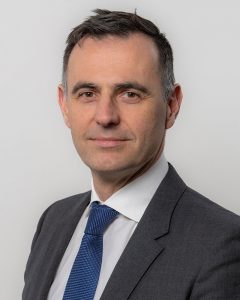
Weber says about half the metastatic spine patients will present through the clinic, and the other half, the emergency department.
“If they’re coming through the emergency department, usually what’s happening is, they’re acutely paralyzing, and that’s because the tumor is essentially compressing the spinal cord, or they’ve had what’s called a pathological fracture, meaning the bone has been weakened so much by the disease that it’s just spontaneously broken, or some low-energy trauma, like sitting down in a chair, for example, has essentially fractured the spine,” Weber says. “That then usually is emergent surgery, if they’re suitable candidates.”
The less emergent cases tend to be referred by oncologists and radiology oncologists when imaging finds a metastatic lesion in the spine.
“I’ve actually worked with my international consortium to develop various tools to help them identify when it’s appropriate for them to send these patients on to a surgeon like myself so that we can assess them and figure out if they need surgery or not,” Weber says. “If we can see these patients in a clinic setting like this, we can get to them before they end up just pitching up into the ED with paralysis and something urgent has to happen for them.”
Weber can treat some cases with minimally invasive surgery, or nonoperatively, with systemic chemotherapy and radiation.
He also is an early adopter of carbon fiber-reinforced polyetheretherketone (CFR-PEEK) implants, which he says offer clearer visualization and more precise radiation therapy planning than traditional titanium implants.
“Clinical studies have shown that CFR-PEEK implants provide comparable stability and functional outcomes to titanium, while enhancing post-operative care through improved radiation targeting, superior imaging clarity that aids in early detection of tumor recurrence, and reduced MRI distortion that makes them ideal for ongoing surveillance,” Weber says. “These innovations reflect a broader shift toward more effective, image-guided, and patient-centered approaches in oncologic spine surgery.”
Each patient has a unique set of factors to consider.
“It’s very important, I think, to look at these patients and recognize the longevity that they may have, in the properly selected patients,” Weber says. “And then when you identify those people, helping them with a spine surgery can allow them to effectively put this spine metastasis behind them and move on with their life to do everything and anything that they want.”
An Early Introduction
Nearly two decades ago, as an orthopedic surgery resident at the University of British Columbia in Vancouver, Weber got to know another aspiring orthopedic surgeon, who was training at the University of Toronto, named Isaac Moss. Canadian orthopedic surgery residents make up a small enough cohort that most of them know each other, and their paths would cross at conferences.
Moss went on to a spinal and scoliosis fellowship at Rush University Medical Center in Chicago, and Weber fellowship trained in spine surgery at the University of California San Francisco. They kept in touch over the years, and Weber stayed tuned in to UConn Health’s spine program as Moss, who arrived at UConn Health in 2011 and today chairs its Department of Orthopaedic Surgery, was growing it.
“From both a professional and personal standpoint, I had been watching UConn Health from afar for a number of years,” Weber says.
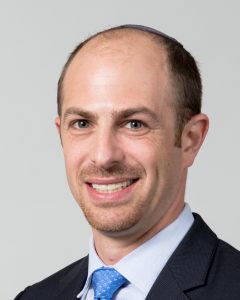
Late last year, the timing was right for Weber to make the move.
“Dr. Weber is an MD/Ph.D. with a phenomenal clinical and academic track record including over 200 peer-reviewed publications and numerous funded research grants,” Moss says. “He has expertise in complex spinal surgery, particularly regarding management of primary and metastatic tumors. He is also recognized internationally as a tremendous educator. We were very fortunate to recruit Dr. Weber to UConn, as he adds valuable expertise and academic power to our team in the Comprehensive Spine Center and Brain and Spine Institute.”
Weber says several factors made UConn Health appealing to him.
“I think, from an institutional perspective, it’s remarkable,” Weber says. “The infrastructure we have, from the Brain and Spine Institute that’s brand new to the OR where the surgeries are happening, that’s quite special. And the research aspect is quite interesting; it was very appealing to keep the continuity of my research.”
But he says what drew him to UConn Health most of all was the people.
“To have someone like Isaac in charge of the orthopedic department, but also the spine program, where you have fundamentally good people and excellent surgeons, I think to immerse myself with a group like this on a daily basis is very attractive,” Weber says.
Spine metastasis has been a focus of Weber’s research. He’s built collaborations that have yielded volumes of published clinical outcomes of spinal metastatic management based on patient data from around the world.
Weber is working on developing a type of implant that would deliver chemotherapeutics where a tumor was resected and reduce recurrence. He’s hoping to start a clinical trial in the foreseeable future.
Separate from oncology, Weber’s interests, both research and clinical, also include a range of spinal conditions, such as lumbar stenosis, cervical myelopathy, and revision cases. He says he enjoys the challenges that come with spinal surgery.
“It’s got this special aspect to it, unlike a lot of orthopedics, in that, we don’t quite have it all figured out just perfectly yet,” Weber says. “Spine, even from when I trained as a resident until now, has evolved dramatically, and I see that only continuing over time. Even here now at my middle career, I’m still excited to try different things and provide improved care to patients.”
Learn more about the Brain and Spine Institute at UConn Health.
Learn more about the Comprehensive Spine Center at UConn Health.
Latest UConn Today
- Neag School Alumni Board Names Recipients of its 2025 ScholarshipGraduate students Emmanuel Dwamena, Caroline Shadman, and Claudia Ventura are recipients of the fund, which was created as a way to invest in future generations of Neag School students
- Accurate Diagnosis Eases FearsAfter being misdiagnosed, Debbie was referred to the Connecticut Bleeding Disorder Center at UConn Health where she was correctly diagnosed and treated and now finally has peace of mind
- UConn Research Shows Autonomous Mowers Make the CutFrom cut quality to fertilizer use, autonomous mowers offer an improved approach to lawncare
- Economist Reimagines Writing Courses in the Age of AIProfessor Metin Coşgel is piloting a new AI-integrated writing curriculum in economics, one of UConn’s largest majors, with the potential to shape how writing is taught across disciplines.
- Eboni S. Nelson Reappointed Dean of the UConn School of LawProvost Anne D’Alleva praised Dean Nelson’s leadership, under which UConn Law has seen student success and an enhanced scholarly profile
- Innovation, Research, and Entrepreneurship on Display in FarmingtonSummer Research Day celebrates accomplishments of UConn student researchers in the TIP Innovation Fellowship and Health Research programs



